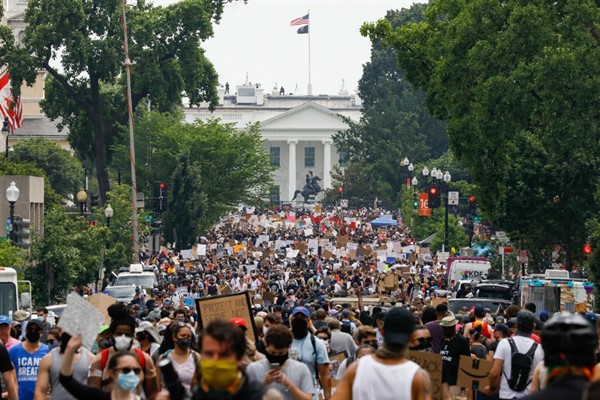A month ago, in a column about how divisions in America would undermine the country’s response to the coronavirus pandemic, I mentioned the U.S. soldiers who in World War II liberated the South of France as well as Nazi-occupied Belgium, where my father spent the war. It is with some embarrassment that I revisit that reference to include a mention of how those soldiers, too, were divided—along the lines of race, reflecting the segregation of much of American society at the time.
My failure to mention that was not due to a lack of knowledge, but simply the result of a blind spot in how I chose to frame my argument. The nature of blind spots, of course, is that we are unaware of them. That is what makes them so dangerous. But they are also valuable for what they reveal when they are exposed.
The police killing of George Floyd, the protests it triggered and the violent police response to them have once again put the deeply rooted inequality facing black Americans in the spotlight, both at home and abroad. In addition to reenergizing a national movement to address that inequality, the events of the past two weeks should serve as a reminder that racial injustice at home is not separate from America’s engagement with the world. To the contrary, it has long been central to it, and the events of the past two weeks make that even clearer.

